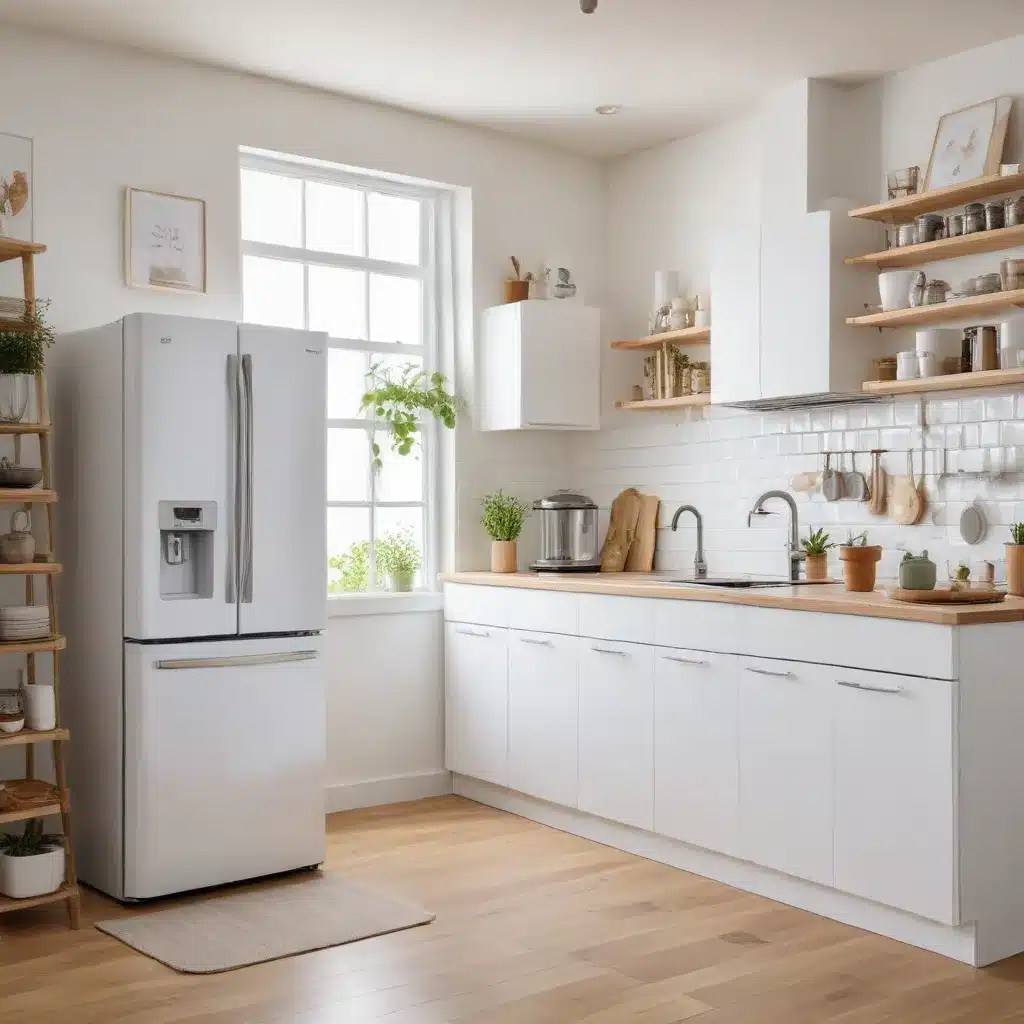
As a seasoned IT professional, I’m excited to share my insights on the transformative world of intelligent home appliances. In an era where energy efficiency and environmental sustainability are top priorities, these cutting-edge technologies offer a game-changing solution for eco-conscious households.
The Rise of Smart Home Automation
The smart home revolution has been steadily gaining momentum, with the integration of the Internet of Things (IoT) and advanced automation systems. These intelligent home appliances are designed to not only enhance convenience and comfort but also deliver substantial energy savings and a more sustainable lifestyle.
Harnessing the Power of IoT
At the heart of this technological evolution lies the IoT, which enables devices to communicate and exchange data seamlessly. By connecting various household appliances, lighting systems, and climate control systems, smart home technology empowers homeowners to monitor, control, and optimize their energy usage with unprecedented precision.
Embracing Automation for Efficiency
Smart home automation takes the guesswork out of energy management, offering a level of control and optimization that was previously unimaginable. Intelligent systems can learn homeowners’ habits and preferences, automatically adjusting settings to ensure optimal energy efficiency without compromising comfort.
The Benefits of Intelligent Home Appliances
Embracing intelligent home appliances can unlock a wealth of benefits, transforming the way we approach household tasks while simultaneously contributing to a greener future.
Eco-Friendly Energy Savings
One of the standout advantages of smart home technology is its remarkable ability to reduce energy consumption and carbon footprint. From smart thermostats that adjust heating and cooling based on occupancy to energy-efficient appliances that optimize their usage, these innovative solutions help homeowners minimize their environmental impact.
Convenience and Comfort
Intelligent home appliances don’t just save energy – they also enhance the overall living experience. Homeowners can remotely control and monitor their appliances, lighting, and security systems, ensuring a seamless and tailored home environment that caters to their specific needs and preferences.
Cost-Effective Efficiency
Beyond the environmental benefits, intelligent home appliances can also deliver significant cost savings. By reducing energy usage and streamlining household operations, these technologies can translate to lower utility bills and long-term financial savings for homeowners.
Key Components of a Smart, Energy-Efficient Home
To create a truly intelligent and eco-friendly home, a collection of interconnected components work together to form a cohesive system.
Smart Thermostats
Smart thermostats are the backbone of energy-efficient home automation. These advanced devices learn homeowners’ habits and preferences, automatically adjusting the temperature to maintain optimal comfort while minimizing energy consumption.
Energy-Efficient Lighting
LED lighting, combined with smart controls such as automated dimmers, motion sensors, and programmable schedules, can significantly reduce energy usage without compromising illumination or ambiance.
Intelligent Appliances
The latest generation of smart appliances, from refrigerators and washing machines to dishwashers and ovens, are designed to operate with maximum efficiency, leveraging features like energy-saving modes and remote control capabilities.
Renewable Energy Integration
Integrating renewable energy sources, such as solar panels, into the smart home ecosystem further enhances the overall sustainability and energy independence of the household.
Overcoming Adoption Challenges
While the benefits of intelligent home appliances are clear, the path to widespread adoption may present some challenges for homeowners.
Cost Considerations
The initial investment in smart home technology can be a barrier for some households. However, the long-term cost savings on energy bills and the positive environmental impact often outweigh the upfront costs.
Data Privacy and Security Concerns
As with any connected technology, homeowners may have concerns about data privacy and cybersecurity. It’s crucial to research reputable brands and ensure that appropriate security measures are in place to safeguard sensitive information.
Complexity and Compatibility
Integrating a fully automated smart home system can be a complex process, with potential compatibility issues between different devices and platforms. Seeking professional assistance or opting for well-integrated, user-friendly systems can help overcome these hurdles.
The Future of Intelligent Home Appliances
As technology continues to evolve, the future of intelligent home appliances holds even more promise for energy efficiency, sustainability, and convenience.
Artificial Intelligence and Machine Learning
The integration of artificial intelligence (AI) and machine learning (ML) into smart home systems will further enhance their ability to learn, adapt, and optimize energy usage based on occupant behavior and environmental conditions.
Seamless Connectivity and Interoperability
Emerging standards, such as Matter, are poised to address the compatibility challenges, ensuring seamless communication and integration between various smart home devices and platforms.
Increased Accessibility and Affordability
As smart home technology matures and becomes more mainstream, we can expect to see greater accessibility and affordability, making these solutions more attainable for a wider range of households.
Conclusion: Embracing the Future of Sustainable Living
In the battle against climate change and the pursuit of a more sustainable future, intelligent home appliances offer a transformative solution. By harnessing the power of technology to optimize energy usage, enhance convenience, and reduce environmental impact, these cutting-edge innovations pave the way for a greener, more efficient, and more comfortable living experience.
As an IT professional, I’m excited to see the continued evolution of this technology and its potential to revolutionize the way we approach household tasks and energy consumption. By embracing intelligent home appliances, we can all contribute to a more eco-friendly and energy-efficient tomorrow.
To learn more about the latest advancements in smart home technology and how you can integrate them into your own home, I encourage you to visit https://itfix.org.uk/. Discover the transformative power of intelligent home appliances and take the first step towards a more sustainable, energy-efficient, and convenient lifestyle.












